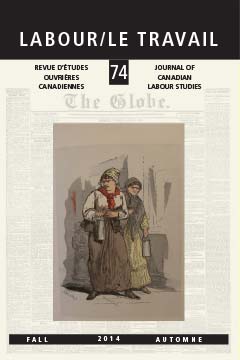“Chrysler Pulled the Trigger”: Competing Understandings of Workplace Violence During the 1970s and Radical Legal Practice
Published 2015-05-19
How to Cite
Abstract
When “workplace violence” was identified as a pressing social problem in the 1980s and 1990s, experts and policymakers focused on the violence of individuals and the psychological causes of that violence, instead of considering the structural factors associated with the dynamics of class relations and the workplace that produced violence.
Yet, workplace violence existed long before the 1980s. This paper investigates three high-profile incidents of workplace violence in the automotive industry of Detroit and Windsor in the 1970s. It explores how these incidents were understood and how such understandings were created and contested, highlighting the pivotal role played by radical legal practice in these contests. It demonstrates that workplace violence often stemmed from factors such as the labour process, racism, and union conflict, and that the success of radical legal practice in raising these issues depended on both the specifics of the crime itself and the political and historical context in which it took place.
Lorsqu’ils ont reconnu « la violence au travail » comme un problème social pressant dans les années 1980 et 1990, les experts et les décideurs se sont concentrés sur la violence des individus et les causes psychologiques de cette violence au lieu d’envisager les facteurs structuraux associés à la dynamique des rapports de classe et du lieu de travail à l’origine de la violence.
Pourtant, la violence au travail existait bien avant les années 1980. Cet article examine trois incidents très médiatisés de violence au travail dans l’industrie de l’automobile à Detroit et Windsor dans les années 1970. On perçoit ces incidents et de quelle façon on crée et conteste ces perceptions, en soulignant le rôle clé joué par la pratique juridique radicale dans ces contestations. Il démontre que la violence en milieu de travail découlait souvent de facteurs tels que le processus de travail, le racisme et les conflits syndicaux, et que le succès de la pratique juridique radicale à soulever ces questions dépendait à la fois des particularités du crime lui-même et du contexte politique et historique dans lequel il était survenu.
